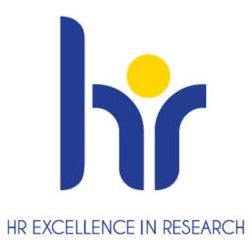Mentoring conference for newly appointed teachers and researchers
Context : Junior faculty face specific and complex problems in the first years of their installment. In-house statistics show a worrisome decline of the use of easy-to-get small grants for reducing their teaching loads, grants proposed by our institution for advancing their research agenda. In a context of joint increased competition for professor positions and continuing reduction of such positions, this trend might signal the abandon of ambitious career plans among our most promising faculty and a sliding of the research output by our university. The corollary question of this observation is the current lack of a program – here and in most if not all French universities- to help these junior faculty members to make their transition from post-docs to full fledged PIs.
A half-day session on mentoring newly appointed lecturers and researchers was organised by Jérôme CASAS on 23 January 2023. Speakers specialising in the field in three countries (UK, Switzerland and France) explained the structures, mechanisms and successes of their approach, followed by a discussion on the appropriateness of such an approach within our institution.
The next step is to propose a detailed programme with a test year of three cohorts of neo-ECs, which meets both the aspirations of the institution and the commitments of the HRS4R project.
This event was filmed and you can access the different videos by clicking on the links below :
- part 1 : Dr. Kay GUCCIONE, Head of Research Culture & Researcher Development at the University of Glasgow (Scotland) : the far-reaching impacts of mentoring junior faculty.
Mentoring is an important instrument for enabling novices in any field to develop specialist expertise. It has been shown to assist faculty to evaluate their position and to plan for success in an increasingly competitive academic job market. Mentoring provides an opportunity for new lecturers to make interpersonal connections, enabling informed and supportive professional development, and can enhance the development and profile of underrepresented. Mentoring can redress organizational norms and develop new cross-cultural models of academic success, embracing diverse approaches and populations. Both mentoring and the closely related discipline of coaching offer positive effects for early career researchers, increasing self-awareness and sensemaking decreasing perfectionism and increasing writing productivity and thesis completion, and decreasing thoughts of dropping out of the higher degree. This presentation will take a summary look at the outcomes of two mentoring programmes – Thesis Mentoring (PhD students mentored by postdocs), and Catalyst Mentoring (postdocs mentored by senior faculty) – documenting the positive outcomes for all participants, mentors, and mentees. By enhancing an organisations capacity for mentoring best practice through the structures and processes of formal mentoring programmes we can also create several broader impacts: on the mentors’ approach to research leadership, and on institution-wide approaches to developing researchers and research capability. This presentation will argue for an approach to researcher development that consolidates and centres the mentoring skill set.
Hidden Curriculum in Doctoral Education blog and book series, Supervising PhDs blog
Guccione, K., & Hutchinson, S. (2021). Coaching and Mentoring for Academic Development. Emerald Group Publishing.
- part 2 : Prof. Geneviève LAMEUL, Directrice du CREAD-Rennes2 (Centre de Recherche Education Apprentissage Didactique)
G. Lameul describes how she draws on her research work (Lameul, 2016, 2023 forthcoming) in education and training sciences to guide her activities in the field of "mentoring young teachers". She begins by recalling the eight conditions conducive to professional development and the construction of a posture of expertise that her work identifies. She then describes how she ensures that these conditions are met in her practice and in her institution (Rennes 2 University) in the training of new lecturers and in the support of doctoral students in her research unit in relation to the doctoral school.
Ménard,L., Hoffmann, C. et Lameul, G. (2017) « Effets de la formation à l’enseignement sur les pratiques des nouveaux enseignants-chercheurs », Recherche et formation, 84 | 2017, 125-140.
Lameul, G., Daele, A. & Charlier, B. (2016). Accompagner l’innovation pédagogique. A., Daele, & E., Sylvestre, Le conseil pédagogique dans l’enseignement supérieur – Cadres de référence, outils d’analyse et de développement, ⟨De Boeck⟩. ⟨hal-01697183⟩
Lameul, G. (2016). Le développement professionnel des enseignants-chercheurs : entre recherche et enseignement, l'élaboration d'une posture d'expertise. (HDR) Education. Université Rennes 2 Haute Bretagne; CREAD.
Lameul, G. (2023, à paraître). Posture professionnelle et niche écologique : des constructions mutuelles et réciproques ? In Guérin, G., Simonian, S. et Thievenaz, J. (coord.), Activité et environnements de formation. Une approche écologique Prémisses d’une théorie, Octarès
- part 3 : Dr. Manuela SCHICKA, Coordinatrice of the Réseau roman de mentoring pour femmes and the workshop program REGARD, office for equality, diversity and inclusion, University of Fribourg (Switzerland)
The Réseau romand de mentoring pour femmes aims at supporting women in academia. The program offers a one-to-one mentoring for our mentees and workshops on career development topics. We also finance individual coachings for our mentees. The program is open to women at the end of their Ph.D. and postdocs who show a motivation for an academic career. Program duration of each edition is 18 months with 25 mentees. The first edition started in 2001 and till today about 300 mentees participated in the program. About one quarter of them obtained a professorship position meanwhile.
ttps://www.unifr.ch/f-mentoring/fr/
-
DatesCreated on February 2, 2023


